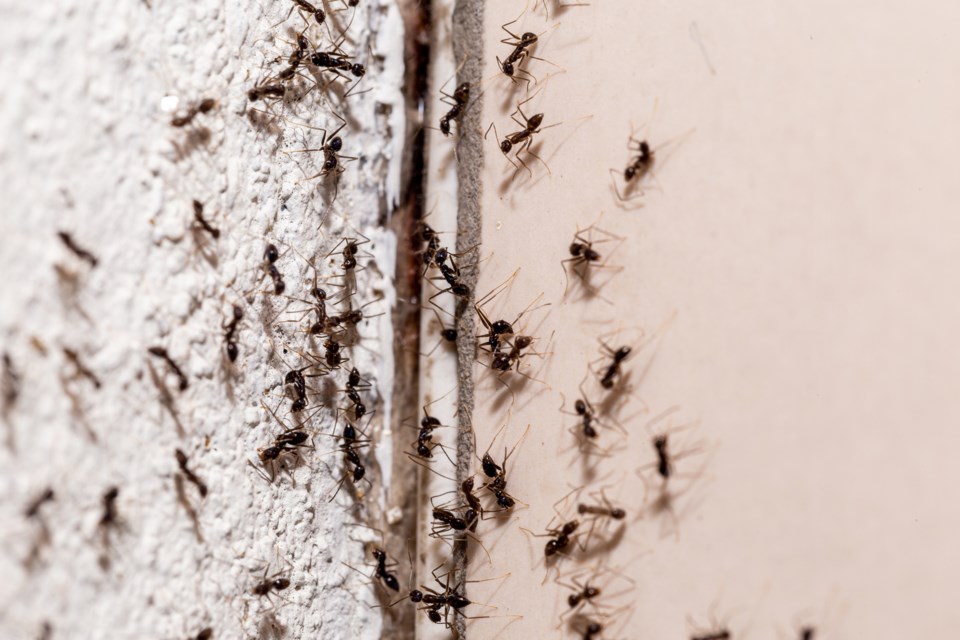While you might think warmer weather encourages pests to stay off your property, a local pest control expert says "the usual suspects are always around."
Certain household pests like rats and mice are a year-round problem for Metro Vancouverites, as are bedbugs, fleas, and silverfish, but there are certain critters and creepy crawlies that become more of a problem as the weather warms, Joe Gabara owner of Green Valley Pest Control tells V.I.A. in a phone interview.
This spring, these are the pests that you may find in your home uninvited according to Metro Vancouver experts.
Rats and mice
The rat and mouse problem in Vancouver has been getting worse over the last few years. Gabara doesn't recommend trying to get rid of them on your own and insists that people shouldn't poison them because they could die in the walls.
"It will smell for months and you'll never find it," he cautions.
Squirrels
Gabara says he has been getting a lot of squirrel calls lately and he's not alone.
Mike Londry, the owner of Westside Pest Control, says squirrels start having their young around this time and are nesting and preparing dens in people's attics.
He says if you see any sign of insulation on or around your roof, you should have it inspected right away. You should also have an inspection if you hear scratching or chirping noises.
During the Stanley Cup finals in Boston, Londry noted that one of the Canucks players had a squirrel come down their chimney and wreak havoc in their all-white living room.
Raccoons
Similar to squirrels, raccoons are more of a problem in people's homes in springtime. If people think they have a squirrel in their attic, it's probably a rat. And if they think they have a raccoon it's probably a squirrel, and "if it sounds like a human being stomping around destroying their attic, it is usually a raccoon," Londry explains.
Because of their dexterity and surprising strength, raccoons can easily get into cedar shingle roofs, especially a roof at the end of its lifespan. Londry says homeowners should keep an eye out for broken shingles. If you're looking for a reason to redo your roof, this is a good one.
"They can do a ton of damage," he warns.
Carpenter ants
There are two types of carpenter ants, according to Londry. The first kind has one queen so taking out the parent nest can fix the problem. The second is most commonly found on the North Shore and in Coquitlam because of the damper climates. This kind unfortunately has multiple queens so knocking out the parent nest will not solve the problem.
Carpenter ants are larger than a grain of rice (and crunch when you step on them) and can have satellite colonies within 100 to 300 feet of the parent nest. When the temperatures heated up over the weekend, calls started flooding into the pest control company.
"They are swarming right now," he says.
Gabara adds carpenter ants are "very complex" and they will try to come back so it's best to get help treating them.
Pavement ants
If you see an ant smaller than a grain of rice, chances are it's a common pavement ant. It's too early to tell if these pests will be a big problem this spring. Londry says it's entirely dependent on the weather. If the temperatures continue to climb then we will see more pavement ants but if not they will start to materialize in April and May.
Stinkbugs, elm seed bugs, ladybugs
Stinkbugs and elm seed bugs winter in our homes and come from the shrubs and trees around us, according to Gabara. The same goes for ladybugs that you might see clusters or aggregates of this spring. If you do see them in your home, he advises against killing or spraying for them. Not only is there no registered insecticide for them but if you kill them or poison them so they die in your walls the smell will attract larder beetles and carpet beetles. Larder beetles are unlikely to come into the house otherwise.
Garbar recommends vacuuming up the bugs and taking them outside or throwing them away. He also recommends taking the ladybugs to a local nursery because they help with aphids.
Carpet beetles
Carpet beetles are very small and fly into homes undetected most of the time through open windows. They lay their eggs in homes and people will start to see the larval stage in their homes. The larvae feed on natural fibers like silk and cotton. Garbar says to just vacuum them up unless you start to see 10 to 20 a day, in which case you should call in a professional.




